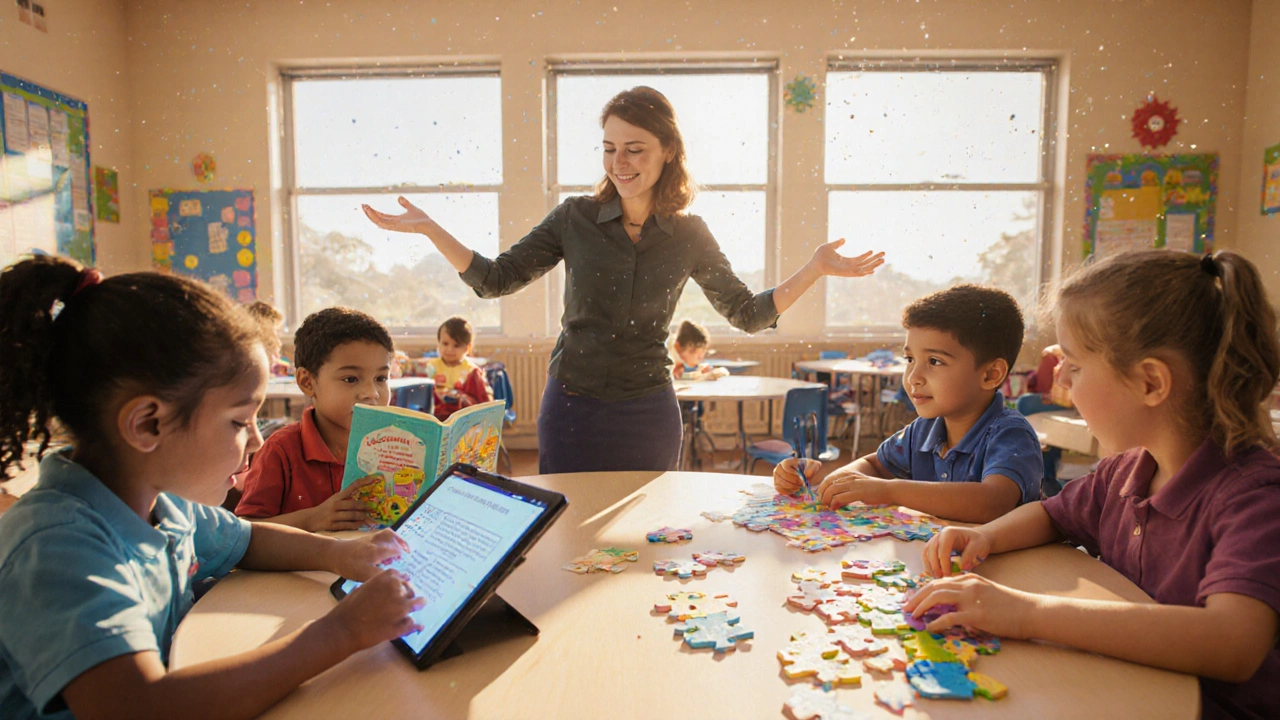Neurodivergent Learners: What They Are and Why It Matters
When talking about neurodivergent, individuals whose brains develop and function in ways that differ from the neurotypical majority. Also known as neurodiversity, it covers conditions such as ADHD, a pattern of inattention, hyperactivity, and impulsivity that can affect learning and behaviour and autism, a spectrum of social‑communication differences and sensory sensitivities. The term special needs, education and support services tailored for learners who require extra help often overlaps with neurodivergent profiles, but the focus is on strengths and accommodations rather than deficits. Understanding these entities helps schools, parents, and tutors move from pity to empowerment, creating spaces where every mind can thrive.
One key piece of the puzzle is inclusive language, the respectful words and phrases we use to talk about disability and difference. It shapes attitudes and can either open doors or shut them. For example, swapping “special needs child” with “neurodivergent learner” signals that we value the whole person, not just the challenge. Inclusive language also influences policy: schools that adopt it are more likely to implement flexible curricula, sensory‑friendly classrooms, and personalised learning plans. In practice, this means teachers might give extra time on tests for ADHD students, or provide visual schedules for autistic learners, keeping the learning environment fair and supportive.
Practical Insights for Parents, Teachers, and Tutors
Our collection below shows how neurodivergent awareness translates into real‑world actions. You’ll find guides on early education ages that consider neurodivergent readiness, tips for managing ADHD‑related fatigue, and polite terminology lists to keep conversations respectful. Articles also dive into the benefits of online schooling for neurodivergent kids, how distance learning can be personalized, and strategies for effective revision using active recall—techniques that help all brains, but especially those that need repetition and clear structure. Whether you’re a parent navigating special needs support in Australia, a teacher planning inclusive lessons, or a tutor wanting to boost confidence, these resources give concrete steps you can apply today. Let’s explore the range of topics and see how each piece adds to a fuller picture of supporting neurodivergent learners.

What's the New Term for Special Needs? Updated Inclusive Language Guide
- by Eliza Fairweather
- on 8 Oct 2025
Explore the latest inclusive terms replacing "special needs", learn why the language shift matters, and get practical tips for using neurodivergent, person‑first, and identity‑first language.
